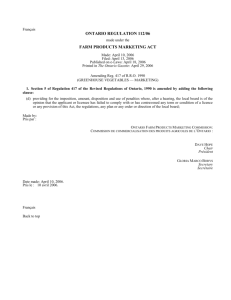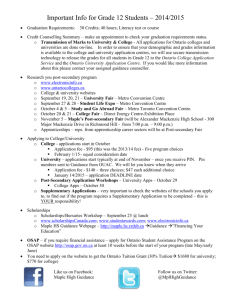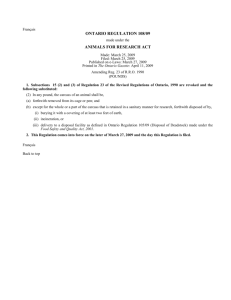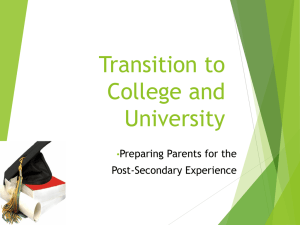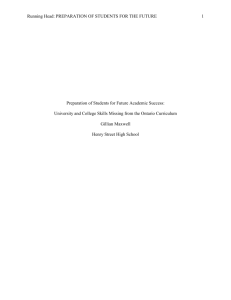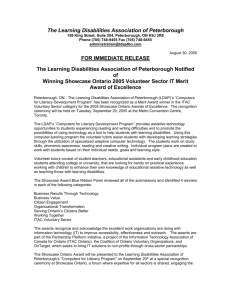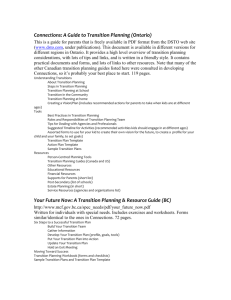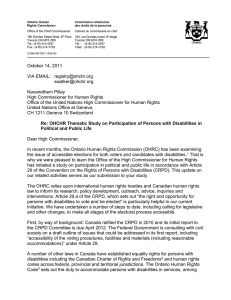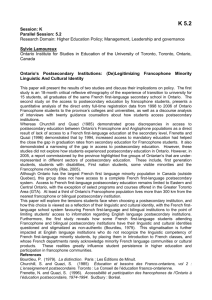Universal Instructional Design
advertisement
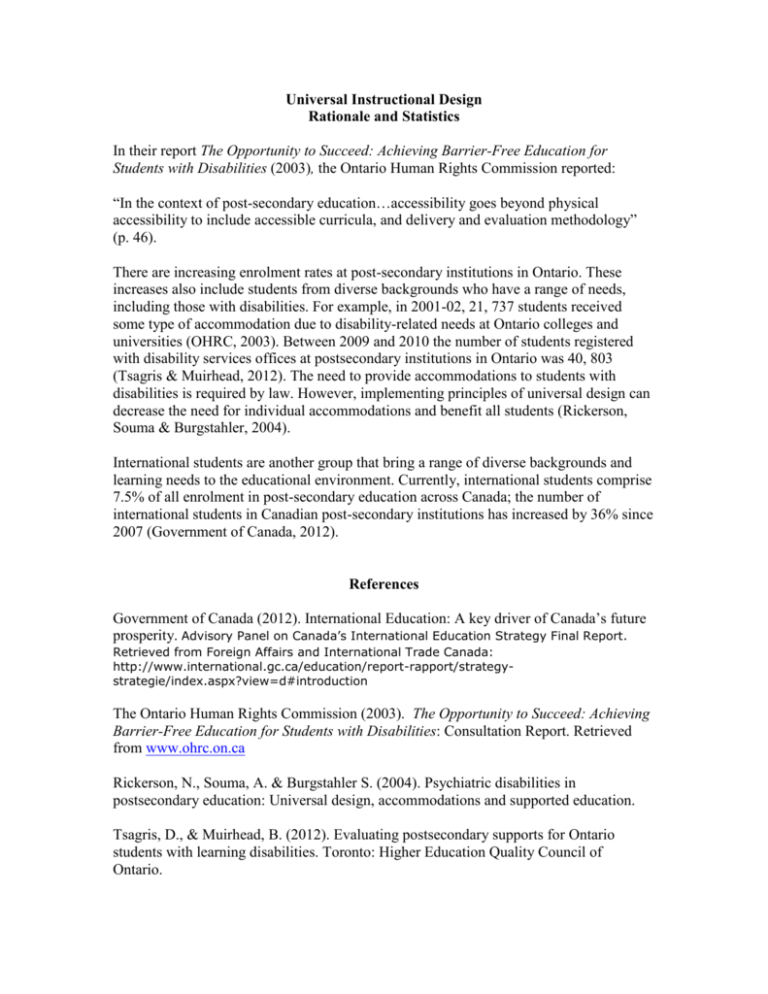
Universal Instructional Design Rationale and Statistics In their report The Opportunity to Succeed: Achieving Barrier-Free Education for Students with Disabilities (2003), the Ontario Human Rights Commission reported: “In the context of post-secondary education…accessibility goes beyond physical accessibility to include accessible curricula, and delivery and evaluation methodology” (p. 46). There are increasing enrolment rates at post-secondary institutions in Ontario. These increases also include students from diverse backgrounds who have a range of needs, including those with disabilities. For example, in 2001-02, 21, 737 students received some type of accommodation due to disability-related needs at Ontario colleges and universities (OHRC, 2003). Between 2009 and 2010 the number of students registered with disability services offices at postsecondary institutions in Ontario was 40, 803 (Tsagris & Muirhead, 2012). The need to provide accommodations to students with disabilities is required by law. However, implementing principles of universal design can decrease the need for individual accommodations and benefit all students (Rickerson, Souma & Burgstahler, 2004). International students are another group that bring a range of diverse backgrounds and learning needs to the educational environment. Currently, international students comprise 7.5% of all enrolment in post-secondary education across Canada; the number of international students in Canadian post-secondary institutions has increased by 36% since 2007 (Government of Canada, 2012). References Government of Canada (2012). International Education: A key driver of Canada’s future prosperity. Advisory Panel on Canada’s International Education Strategy Final Report. Retrieved from Foreign Affairs and International Trade Canada: http://www.international.gc.ca/education/report-rapport/strategystrategie/index.aspx?view=d#introduction The Ontario Human Rights Commission (2003). The Opportunity to Succeed: Achieving Barrier-Free Education for Students with Disabilities: Consultation Report. Retrieved from www.ohrc.on.ca Rickerson, N., Souma, A. & Burgstahler S. (2004). Psychiatric disabilities in postsecondary education: Universal design, accommodations and supported education. Tsagris, D., & Muirhead, B. (2012). Evaluating postsecondary supports for Ontario students with learning disabilities. Toronto: Higher Education Quality Council of Ontario.

